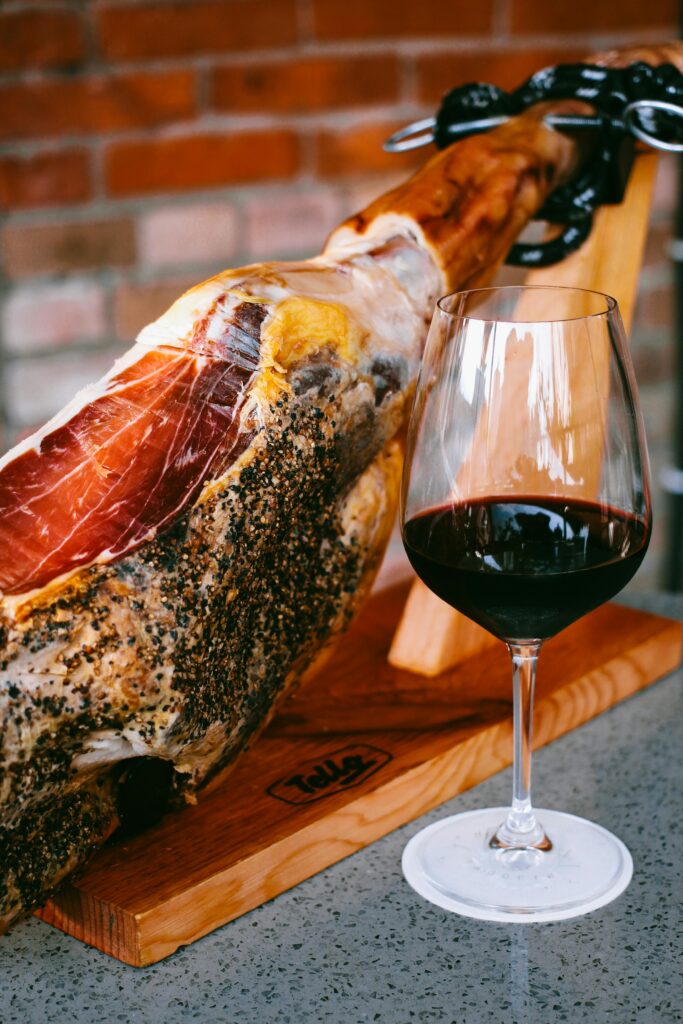The Spanish can most definitely be considered experts in the world of charcuterie, most notably the prized pata negra ham from wild pigs, but also chorizo, lomo, and Serrano.
And nothing goes better with these Iberian delicacies than an authentic Spanish wine.
Cured hams have usually been enjoyed with red wine, as both are popular Spanish local and export products. The cream of the crop, the world-renowned pata negra ham from the black pigs who eat natural food including acorns in their oak forest dehesas, Iberico Bellota ham is traditionally paired with sherry. However, white wine is gaining ground since red wine’s more intense flavour can take away some of the delicate taste of ham.
We can distinguish two types of pairing: complementary and contrasting.
Complementary Pairing
To achieve harmony between the wine and charcuterie product we must consider the blend of flavours to create a harmonious experience.
Contrasting Pairing
White wines and cavas are perfect to cleanse the palate to fully enjoy the authentic taste of in every slice of your Iberian charcuterie.
If you should prefer red wine with your Spanish delights, then we recommend having some ‘picos sevillanos” (small bread sticks) on hand to neutralise your palate. Mature reds are the best accompaniment to Bellota ham. Young reds can be too acidic, have too much tannin and oak, and overwhelm the flavour of the ham, yet older reds with polished, mature tannins and sensitive oak treatment such as Vina Tondonia, a Rioja wine from bodega López are a perfect match.
When choosing a white wine we prefer crisp and not too young or fruity. This type of wine will bring out the flavour of the various charcuteries perfectly.
The star of Spanish hams, the pata negra, is for instance best enjoyed with a more mature white that boasts a touch of wood.
Alternatively, the bubbly cava from Catalonia, which is Spain’s type of champagne, can prove an ideal contrasting pairing with a full-flavoured and slightly spicy slice of chorizo. Choose a cava low in sugars, such as ‘Brut’ or another with longer ageing to avoid a too acidic ‘clash’ with the buttery soft Iberian ham.
The only wine we would really avoid in this instance is rosé, which really ads nothing to the experience of Iberian charcuterie’s exquisite umami flavours.
Serrano ham comes from white pigs, its title referring to the mountains or Sierra as they are hung to dry in sheds built at higher elevations. This ham is the cheaper alternative to the Iberico ham but it is also delicious and pairs easier with young and fruity wines, and certainly with cava.


